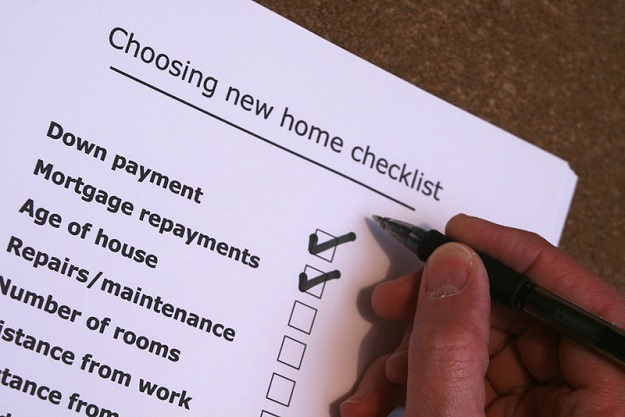Buying a house is both exhilarating and stressful. On the one hand, you’ve been planning and saving for this for years. You’re ready to find your perfect home.
On the other hand, buying a piece of property is a complicated process, and if you don’t know what you’re in for, it can be a bumpy ride.
How much home can you afford? Find out here!
Here are six steps to buying that can bring clarity about real estate transactions.
Step One: The Money You’ll Need
The typical down payment on a home is twenty percent of its value. If your home-buying budget is $300,000, you’ll need around $60,000 to get the ball rolling.
There are, however, some programs and workarounds that may be available to you. Ask your real estate agent about ways you can reduce your down payment.
“Closing costs” is a phrase you’ll hear when buying a house. Closing Costs are a collection of charges accrued for services provided throughout the process from multiple professionals and clerical fees.

Examples of closing costs include appraisals, inspections, surveys (if applicable), and charges for things like title check, transfer, and filing.
Closing costs, which you pay collectively at the end of your transaction, usually run between two and five percent of your home mortgage loan amount.
Using the same $300,000 example, and estimating at four percent, your closing costs amount to around $12,000. The kicker here is that, in most cases, closing costs are paid out-of-pocket and not rolled into your home mortgage loan.
However, as with the down payment, there may be ways you can reduce or negotiate closing costs, and your real estate agent may be able to assist here as well.
An earnest money deposit is another out-of-pocket expense. Earnest money deposits indicate to the seller that you’re serious about your offer.
Step Two: Managing Your Credit Score and DTI
Your credit score and your debt-to-income ratio (DTI) should be clean and balanced to qualify for a home mortgage loan.
Your credit score, at the minimum, should be around 620, but a score of 740 or higher can earn you lower interest rates.
Don’t finance any major purchases within two years of purchasing your home because this affects your debt-to-income ratio and may indicate that you’re financially overextended.
Your debt-to-income ratio is calculated by adding the total of your monthly debt and dividing it by your gross income. To qualify for your home mortgage loan, your DTI should be around 36 percent or lower and no higher than 43 percent.
Be prepared to provide stacks of documentation regarding all of your accounts, including checking, savings, investments, student loans, lines of credit, or any other item listed as income or an expense.
Tips for First-Time Home Buyers
Step Three: Shop Lenders and Get Pre-Approved
Getting pre-approved for your home mortgage loan is one of the most important steps you can take when buying a house.
But before you put in your mortgage loan application, take the time to research and shop lenders. The lender is where a good majority of your closing costs are applied.
Lenders have to provide you with a list of estimated closing costs. You may be surprised how lenders differ from one another and how much money you can save by examining your options.

Applying for a home mortgage loan is a lengthy process.
If you wait until you find a house you want to buy, the seller may not be willing to wait for your application process, and may also question whether you might be denied for your loan.
But if you secure your loan before house-hunting, you’ll be armed with purchasing power.
Sellers are more likely to accept an offer that’s been pre-approved.
And, with pre-approval, you’ll know exactly what your home-buying budget is.
Step Four: Your Wish List vs. Your Budget
Discuss your budget with your real estate agent to fully understand what you can buy, and where, realistically in the current market.
Location drives up home values. If it’s important for you to live near top-notch schools, parks and recreation, and easy access to an array of amenities, you’re going to pay a premium.

You may have to sacrifice some of your wish-list items, such as wood floors, marble countertops, or even size, to live in that location.
Your real estate agent can inform you about current market conditions and how much house your money can buy.
Having ironed out your budget, wish list, and desired location, it’s time to search for your dream home.
Step Five: Offers and Negotiations
Once you find a home that ticks off all the boxes, it’s time to submit your offer. Your real estate agent will help you draft a compelling offer, but don’t be surprised if your proposal isn’t the only one on the table.
If the seller has more than one offer, another buyer may win the prize. This is where your pre-approval will work to your advantage. But a bidding war is possible, which means the competition between you and other buyers drives up the price of the property.
Trust your real estate agent to help you navigate the waters of negotiating offers and contracts. Your agent is trained to be diplomatically assertive on your behalf, meaning he or she isn’t afraid to go into negotiations with a strong stance.
Things to Consider When Pricing Your House for Sale
Step Six: The Closing Process
Before you can close on your new home, the bank needs to verify that the house is worth the amount of money you’re borrowing. For this reason, the house will be appraised by an independent appraiser to assess the worth of the property.
The bank also wants to ensure that the house and property are in sound condition, so the house is inspected for foundation issues, plumbing, electrical, roofing, and pest inspection.

The charges for the appraisal and inspection are enveloped in your closing costs, so you won’t need to pay for those services up-front.
You’re at the finish line, which in real estate terms means the closing table.
The closing table is where you, the real estate agents, escrow agent, and others meet to finalize the purchase. You’ll sign documents, pay your closing costs, and then finally receive the keys to your new home.
Conclusion
When you know ahead of time what to expect from the home-buying process, your journey is filled more with adventure than anxiety.
Make sure your finances prepped for purchase. Tidy up your credit score and DTI. Get pre-approved for your home mortgage loan, be realistic about what your money can buy, and be patient with the process.
Your professional real estate agent is your greatest asset when buying your first home. Your agent will listen to your wants and needs, align them with your budget, and show you homes that match your criteria – but they don’t stop there.
When viewing houses, your real estate agent can point out area features in each community and can also guide you on what to watch out for when touring properties.
Your agent goes to bat for you when it’s time to submit and negotiate offers and is the first to celebrate with you when you receive the keys to your first house.
Ask your agent for more steps on how to prepare to buy your first home.




